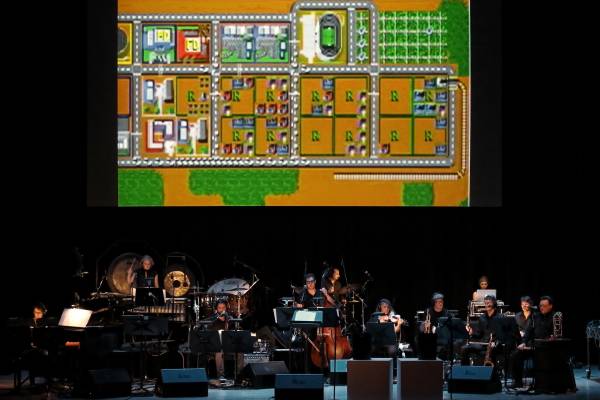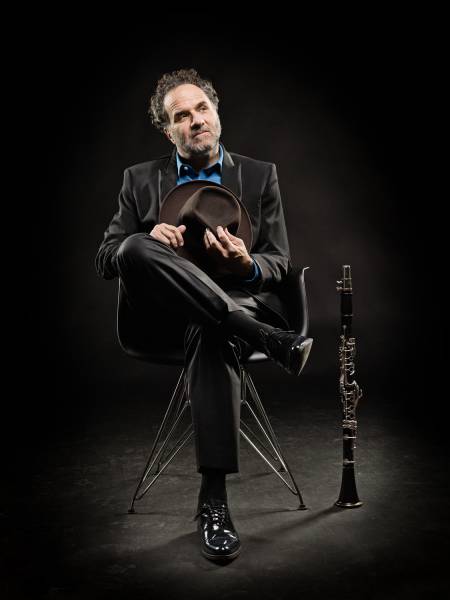- What were they thinking?

Singer Dianne Reeves gave a performance at City Recital Hall that became the arena-rock version of jazz, with extended singalongs and massed phone lights waving in the air. She already had us eating out of her palm by doing what she does so well, so why stoop to that? By contrast Brazilian Bebel Gilberto seemed plain bored with singing bossa nova. Knowing you can pack out concerts halls around the world is not a good enough reason for doing it if your heart’s not in it. Even worse was the wildly uneven British show of ‘tween-war standards, Puttin’ on the Ritz, which was performed to recorded music that sounded as brittle and cheap as a transistor radio.
- Surprise packet
Arnhem Land’s Yirrmal Marika, a grandson of Yothu Yindi’s Dr Yunupingu, stood out amid some heavyweight company (Radical Son, Ursula Yovich and more) in Sydney Festival’s 1967: Music in the Key of Yes. His wailing, braying, beautiful singing, whether on traditional or non-traditional material, drew us into the riches of this ancient culture with thrilling impact.
Elysian Fields presented a head-spinning dialogue between 600 years ago and now, with Jenny Eriksson’s electric viola da gamba – a sound as foreign as dreaming someone else’s dreams – heard amid jazz-inflected piano, bass, drums and violin. They premiered a song cycle in which pianist Matt McMahon had set 16th-century poems by Thomas Wyatt, who was equally famed for introducing the sonnet to English and for being a likely paramour of Anne Boleyn – yet dying with his head still on.
- Courting controversy

Was Canadian composer Nicole Lizee’s Sex, Lynch and Video Games turning pop culture into high art, or vice versa? In fact such lines were redundant (like those between genres and art-forms) as she played celebrant at the most successful marriage of music and image I have encountered. Neither was subservient to the other, and neither had a reason for existing without the other. Slices of David Lynch’s works were mashed, mangled and repeated to function much as dance does against a ballet score, to extremely imaginative and witty effect. The term “avant-kitsch” sprang to mind…
For years I have been bemused that Sydney Festival largely ignores Australia’s improvisers, the exception usually being a gig in a tent. In August Monsieur Camembert trashed the idea that bands that normally play in clubs won’t fill concert halls, selling out its Leonard Cohen Show at City Recital Hall despite a monthly residency at Camelot. That a local band can so readily move from a 150-seater club into a 1200-seat theatre should end the near-exclusion of our most creative players from the festival.
- My highlights

David Krakauer is simply the finest clarinettist I have heard. He extends the instrument’s potential in ways that mess with one’s mind, so it could sound like the popping, swooping song of two virtuosic birds in dialogue, ache with 10,000 years of human suffering or explode with as many millennia of joy. Similarly his band, Ancestral Groove – Sheryl Bailey (guitar), Jerome Harris (electric bass), Michael Sarin (drums) and Jeremy Flower (sampler) – was probably the funkiest I’ve heard, while also being capable of incendiary klezmer, inventive jazz or pure sonic poetry.
If you could distil innocence and teach it to play guitar it would sound like Bill Frisell. Although he is among the most intuitive improvisers and innovative guitarists in jazz history, it is his ability to turn off the knowledge and play like a child that defines his artistry. His When You Wish Upon a Star screen-music project (with singer Petra Haden, bassist Thomas Morgan and drummer Rudy Royston) was unforgettable.
Among the rest singer and multi-instrumentalist Jen Shyu – with a band including local master-drummer Simon Barker – made cutting-edge art seem homespun and devoid of artifice. Paul Cutlan’s tribute to Eric Dolphy, A Far Cry, had Peter Farrar’s alto saxophone sounding as though jubilation was straining to escape from every aperture in the music’s fabric, and if there was a thread across the year, it was the many inspired pianists, including Omar Sosa, Tigran Hamasyan and Glenn Zaleski.
Looking Ahead

London’s reputation for fostering unique voices within the jazz tradition continues with Shabaka and the Ancestors. Led by saxophonist Shabaka Hutchings who is of Caribbean descent (and a member of the current incarnation of the Sun Ra Arkestra), the Ancestors consist of five South African players. They keep alive and expand the rich heritage of South African jazz musicians playing a pivotal role on the London jazz scene, which began in the 1960s with such great players as Dudu Pukwana, Johnny Dyani and Louis Moholo. Hear the explosive sound of Shabaka and the ancestors at the City Recital Hall on January 24.
When Steve Gadd was here a little over a year ago people were just about hanging from the Basement’s sprinkler system in their zeal to hear the World’s Most Famous Drummer. They weren’t disappointed, as the man who has propelled the music of Chick Corea, Eric Clapton, Paul Simon and hundreds more dug grooves as deep as the Mariana Trench. That was with the Steve Gadd Band, and now he returns as one third of Blicher Hemmer Gadd, with saxophonist Michael Blicher and organ player Dan Hemmer. Expect the excitement to be just as intense at the Basement on February 21-22.